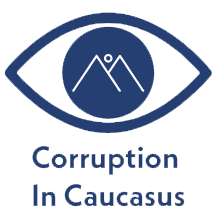
The Caucasus region, encompassing Armenia, Azerbaijan, and Georgia, has long grappled with the pervasive issue of corruption, which undermines governance, economic development, and public trust. Recent events have once again brought this challenge to the forefront, highlighting the urgent need for systemic reforms and increased transparency.
Armenia: Lawmaker Indicted on Corruption Charges
In Armenia, Member of Parliament Ovik Agazaryan has been indicted on serious charges of bribery and fraud. The Prosecutor General’s Office has imposed a travel ban on Agazaryan as a preventive measure. The Armenian parliament approved a motion to initiate criminal proceedings against him, with 65 MPs voting in favor and only two against.
The allegations involve two separate incidents. In the first, Agazaryan allegedly promised to facilitate the export of agricultural livestock using forged documents, intending to charge businessmen between $200,000 and $300,000 for the export of 150–200 cattle. In the second case, he purportedly demanded a bribe of $23,000 and 300,000 drams from a citizen in exchange for facilitating the demolition of a dilapidated school building and securing the land for residential construction. These charges come amid ongoing political turbulence in Armenia, reflecting broader challenges in combating corruption within the country’s political system.
Azerbaijan: Crackdown on Independent Media
Azerbaijan continues to face criticism for its suppression of independent media and civil society. In January 2025, seven individuals affiliated with independent news outlets Abzas Media and Radio Free Europe/Radio Liberty (RFE/RL) went on trial, facing smuggling charges that they deny, claiming the money was planted by investigators. International press freedom groups have demanded their release, viewing the arrests as an attempt by the authorities to silence anti-corruption reporting. Azerbaijan ranks 164th out of 180 countries in Reporters Without Borders’ World Press Freedom Index, underscoring the challenging environment for journalists in the country.
Georgia: Former President’s Legal Battles
In Georgia, former President Mikheil Saakashvili has been sentenced to an additional four years and six months in prison on charges of illegal border crossing, bringing his total imprisonment to 12½ years. Saakashvili, who served as president from 2004 to 2013, has rejected the charges as politically motivated. His legal battles have sparked debates about the independence of the judiciary and the politicization of legal proceedings in Georgia.
Regional Implications and the Path Forward
Corruption in the Caucasus region is not confined to isolated incidents but is deeply entrenched in political and economic systems. Reports have highlighted the connections between corruption and frozen conflicts in the South Caucasus, noting that corrupt leaders often make decisions that strengthen their position or financial prospects rather than pursuing genuine conflict resolution.
Addressing corruption in the Caucasus requires a multifaceted approach:
- Strengthening Institutions: Building independent and transparent institutions that can hold public officials accountable is crucial. This includes judicial reforms to ensure fair and impartial legal proceedings.
- Protecting Media Freedom: Ensuring the safety and freedom of journalists is essential for uncovering and reporting corrupt practices. International organizations and local governments must work together to create an environment where the press can operate without fear of retribution.
- Engaging Civil Society: Empowering civil society organizations to monitor government actions and advocate for transparency can drive grassroots demand for reform.
- International Cooperation: Given the transnational nature of some corrupt practices, international collaboration is necessary to track and recover illicit funds and to implement sanctions against those involved in corruption.
The recent events in Armenia, Azerbaijan, and Georgia serve as a stark reminder of the pervasive nature of corruption in the Caucasus region. While the challenges are significant, concerted efforts by governments, civil society, and the international community can pave the way toward greater transparency, accountability, and ultimately, public trust in institutions.
